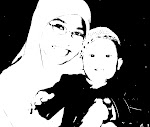Anda ada masalah bahasa? Sukar memahami anatomi kerana bahasa? Anda ada alternatif. Berikut adalah nota saraf kranial terjemahan bahasa melayu. Ia hanya untuk memudahkan anda. Kebanyakan buku anatomi tubuh manusia adalah di dalam bahasa inggeris. Anda perlu menguasai kedua-dua bahasa.
Sebelum mengenali saraf kranial, mari mengenal sistem saraf secara umum.
Sistem Saraf sebagaimana yang anda pelajari di peringkat sekolah menengah terbahagi kepada 2:
1. Sistem Saraf Pusat (Central Nervous System)
2. Sistem Saraf Periferi (Peripheral Nervous System)
Sistem Saraf Pusat terdiri daripada 2:
1. Otak (Brain)
2. Saraf tunjang (Spinal Cord)
Sistem Saraf Periferi pula terdiri daripada 2:
1. Saraf Kranial (Cranial Nerves)
2. Saraf Spinal (Spinal Nerves)

SARAF KRANIAL (Cranial Nerves (CN))
1. Terdapat 12 pasang saraf kranial (kanan dan kiri).
2. Saraf-saraf kranial kelihatan muncul daripada bahagian bawah otak.
3. Selalunya dikenali dengan nombor. Ia juga boleh mempunyai nama sendiri.
CN1- Olfactory nerve -adalah saraf untuk bau (smell or olfaction)
CN2- Optic nerve -saraf untuk melihat (sight-related to optics)
CN3- Oculomotor nerve -saraf ke otot mata (pertaining to eye- ocular)
CN4- Trochlear nerve -saraf otot mata superior oblique yang mempunyai penyangkuk (pulley = trochlea)
CN5- Trigeminal nerve -saraf tri-geminal kerana ada 3 bahagian (tri=three)
i. Bahagian Ophthalmic -ke orbit mata
ii. Bahagian Maxillary -ke rahang atas (upper jaw)
iii.Bahagian Mandibular -ke rahang bawah (lower jaw)
CN6- Abducent nerve -saraf otot lateral rectus yang abduksikan bola mata (abducent=abduct)
CN7- Facial nerve -saraf otot muka
CN8- Vestibulo-cohchlear nerve -ada 2 bahagian:
i. Vestibular nerve -untuk keseimbangan (equilibrium)
ii. Cochlear nerve -untuk pendengaran (auditory)
CN9- Glossopharyngeal nerve -ke lidah (glosso-lidah) dan pharynx
CN10- Vagus nerve -saraf 'merayau' (vagrant-wandering) kerana mensarafi kawasan yang meluas ke leher, thorax dan abdomen)
CN11- Accessory nerve -saraf 'aksesori' kerana kelihatan seperti sebahagian daripada saraf vagus (accessory to vagus)
CN12- Hypoglossal nerve -saraf ke otot lidah yang bergerak ke bawah lidah sebelum mensarafinya (hypo-bawah, glosso-lidah)
Ingat tau yang 12 ni penting! Boleh lihat gambar yang bagus di laman berikut:
http://faculty.washington.edu/chudler/cranial.html
Justingat




No comments:
Post a Comment